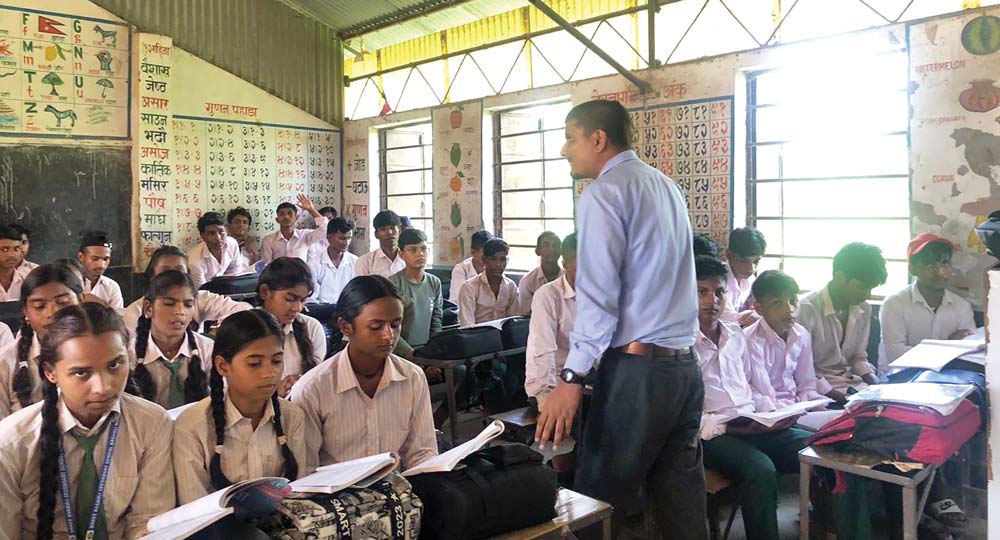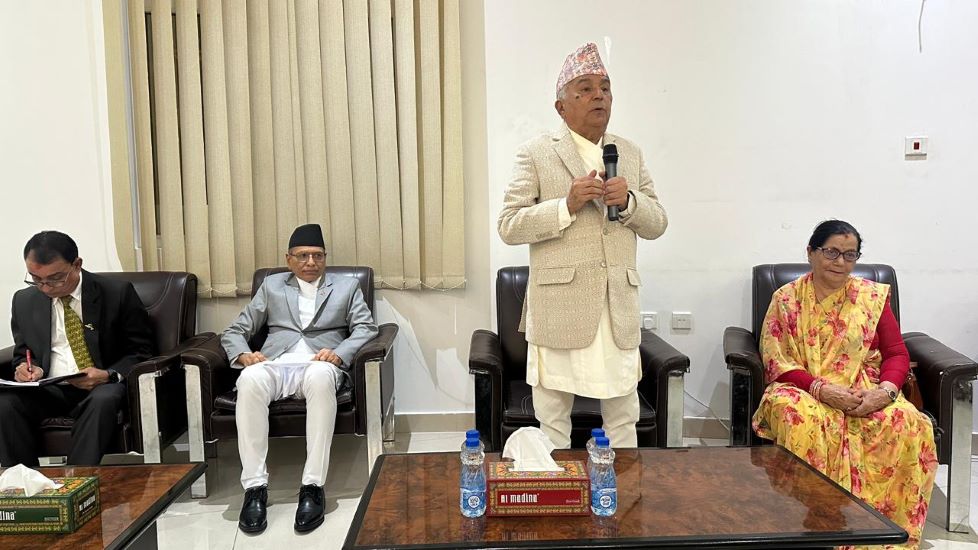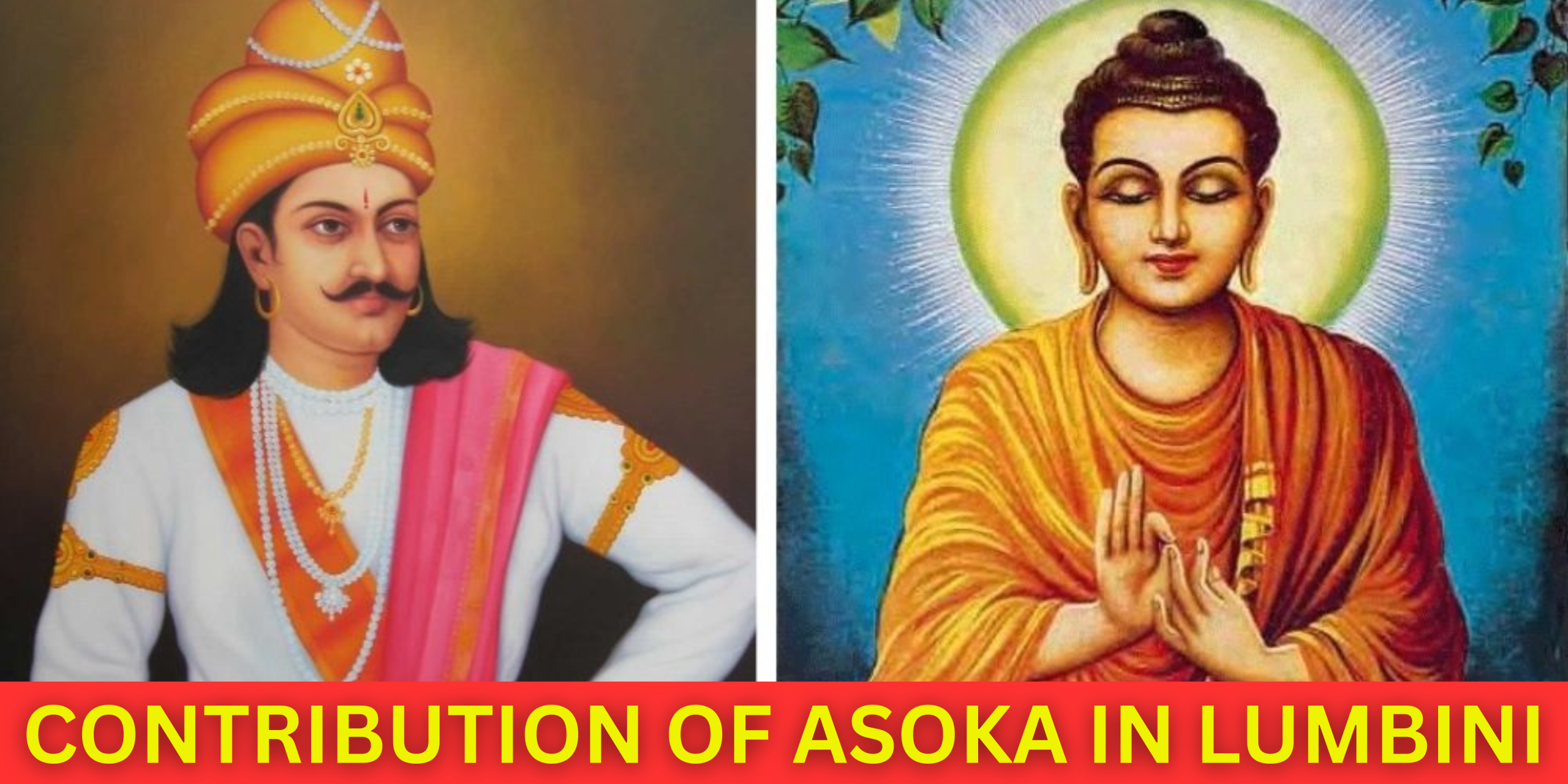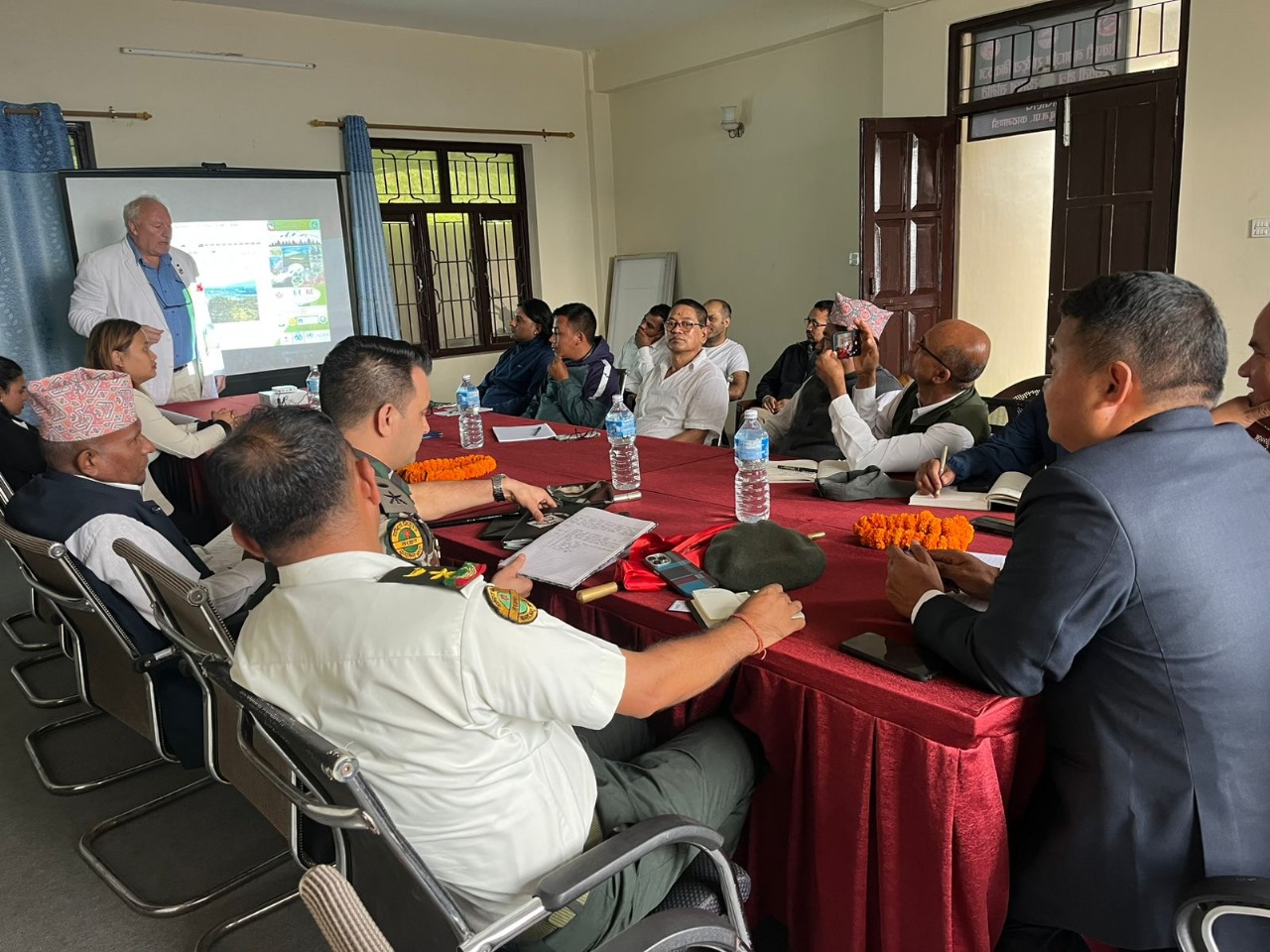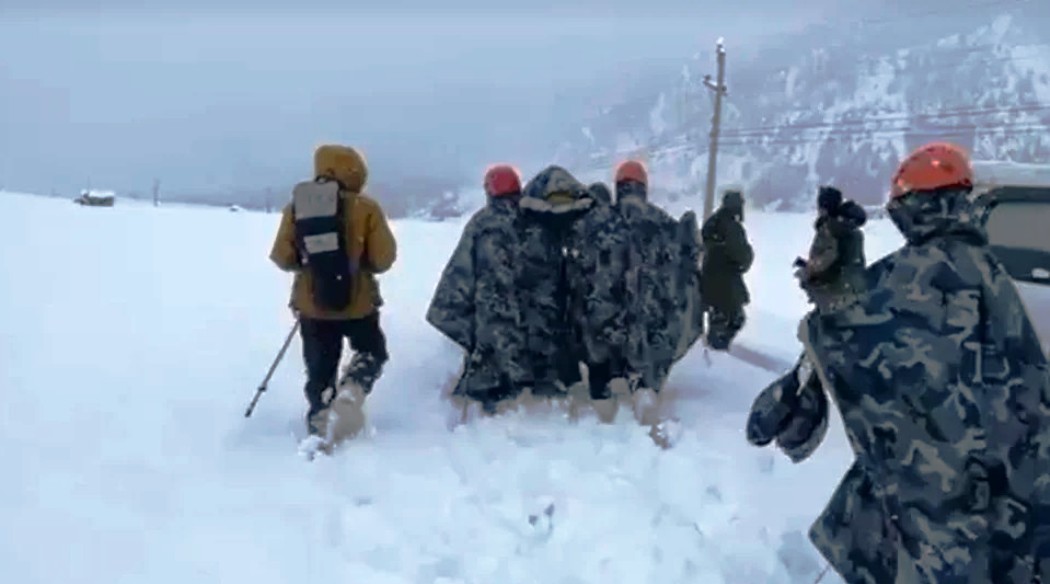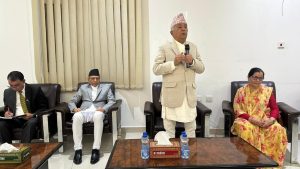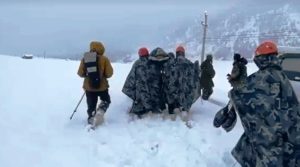Kathmandu, 7 Oct: As autumn begins in the Everest region, the tourist season also gets underway. Every year in late September (Ashoj in the Nepali calendar), the trekking routes from Namche Bazaar to Gokyo, Dingboche, and Phortse become lively with tourists, traders, and locals.
This year, however, snowfall in mid-September has turned the Khumbu region white much earlier than usual. Snowfall in September is considered rare here. The early snow has affected locals, business owners, and climbing teams. According to local Pasang Sherpa, heavy rainfall that began Sunday morning led to snowfall in areas above Namche, within Khumbu Pasang Lhamu Rural Municipality of Solukhumbu district. Continuous rain and snow have blanketed Dingboche, Lobuche, Pheriche, and Gokyo in white.
According to Laxman Adhikari, Chairperson of Ward No. 4 of Khumbu Pasang Lhamu Rural Municipality, over four feet of snow accumulated on rooftops in upper Khumbu.
Five Hotels Collapse
“The snowfall above Namche has disrupted daily life,” said Adhikari. “In the Dingboche area, five hotels were damaged by the snow, though there were no human casualties.”
The District Police Office in Solukhumbu confirmed that the roofs of five hotels in Dingboche collapsed under the heavy weight of snow and rain. Deputy Superintendent of Police (DSP) Manojit Kunwar said, “The continuous rain and snow weakened the roofs, causing them to collapse. While there were no injuries, there has been significant financial loss.” He added that the snowfall during the peak tourism season has made local business owners more anxious.
Unusual Weather Pattern
Snowfall in Khumbu during September is considered highly unusual. Typically, heavy snow occurs between November and January. “Snowfall in September is a sign of climate change,” said Lama Kaji Sherpa, Chairperson of the Sagarmatha Pollution Control Committee (SPCC). “I have rarely seen snow in September — it’s a rare event.”
According to him, weather patterns in the Himalayas have become increasingly unpredictable due to climate change. “In the past, snowfall and melting followed a natural rhythm. Now that balance is gone,” he added.
Impact on Daily Life and Work
The snowfall has disrupted daily life for Khumbu residents. Although some of the snow melted after the weather cleared on Monday, temperatures have dropped sharply, slowing daily routines, locals reported. “The temperature has fallen drastically since the snowfall,” said local resident Lhakpa Gyaltzen Sherpa.
The construction work at the under-construction Ama Dablam Hydropower Project has also been halted due to the snow. Chairperson Adhikari said workers have descended to Namche due to the cold, and construction will resume only once the weather improves.
Climate Change and Himalayan Life
In recent years, the Khumbu region has witnessed increasingly unpredictable weather — sometimes with early snowfall in September, and sometimes with no snow even in January.
Environmental experts say rising temperatures and erratic rainfall have reduced overall snowfall in the Himalayas, yet short, intense snowstorms have become more frequent.
“In the past, the tourist season ran smoothly from September to November,” said local businessman Toya Kumar Shrestha. “Now, snow and rain cause road blockages, flight cancellations, and empty hotels.”
Save the Himalayas, Maintain Climate Balance
Residents of Khumbu have urged both local and national governments to take stronger action to protect climate balance after this unusual September snowfall.
“We’ve been feeling the effects of climate change for several years,” said Suman Moktan from Namche. “Now snow falls at odd times, and heat waves come at unusual seasons — the character of the Himalayas is changing.”
Locals have also called for climate adaptation programs to be made a priority. “When snow falls at unexpected times, it affects transport, tourism, and everyday life,” said Ward Chairperson Laxman Adhikari of Khumjung. “Our economy is tied to the rhythm of snow, so the state must bring special plans for this region.”






